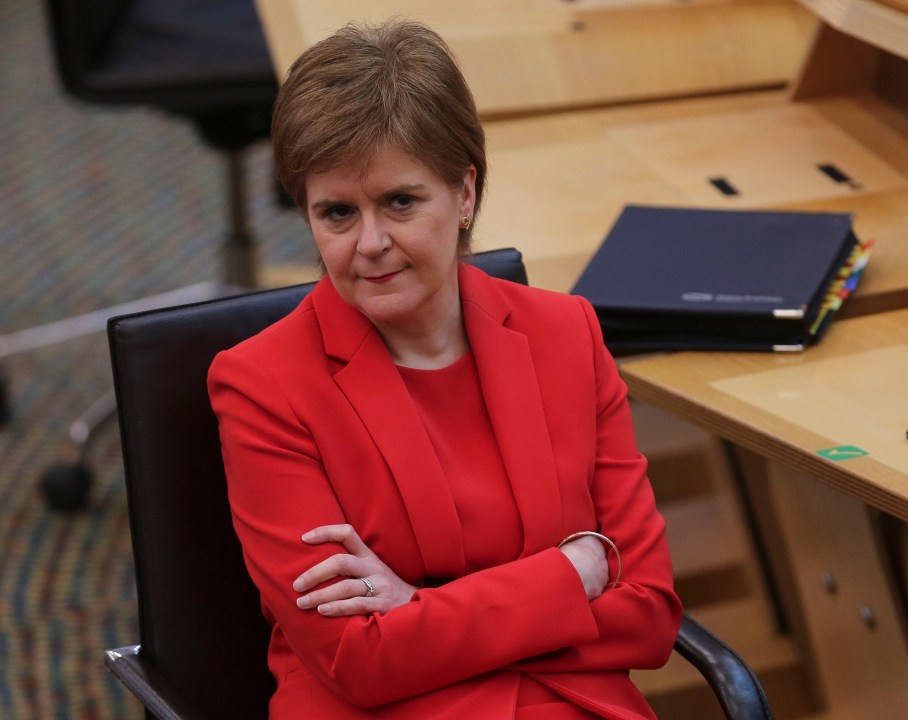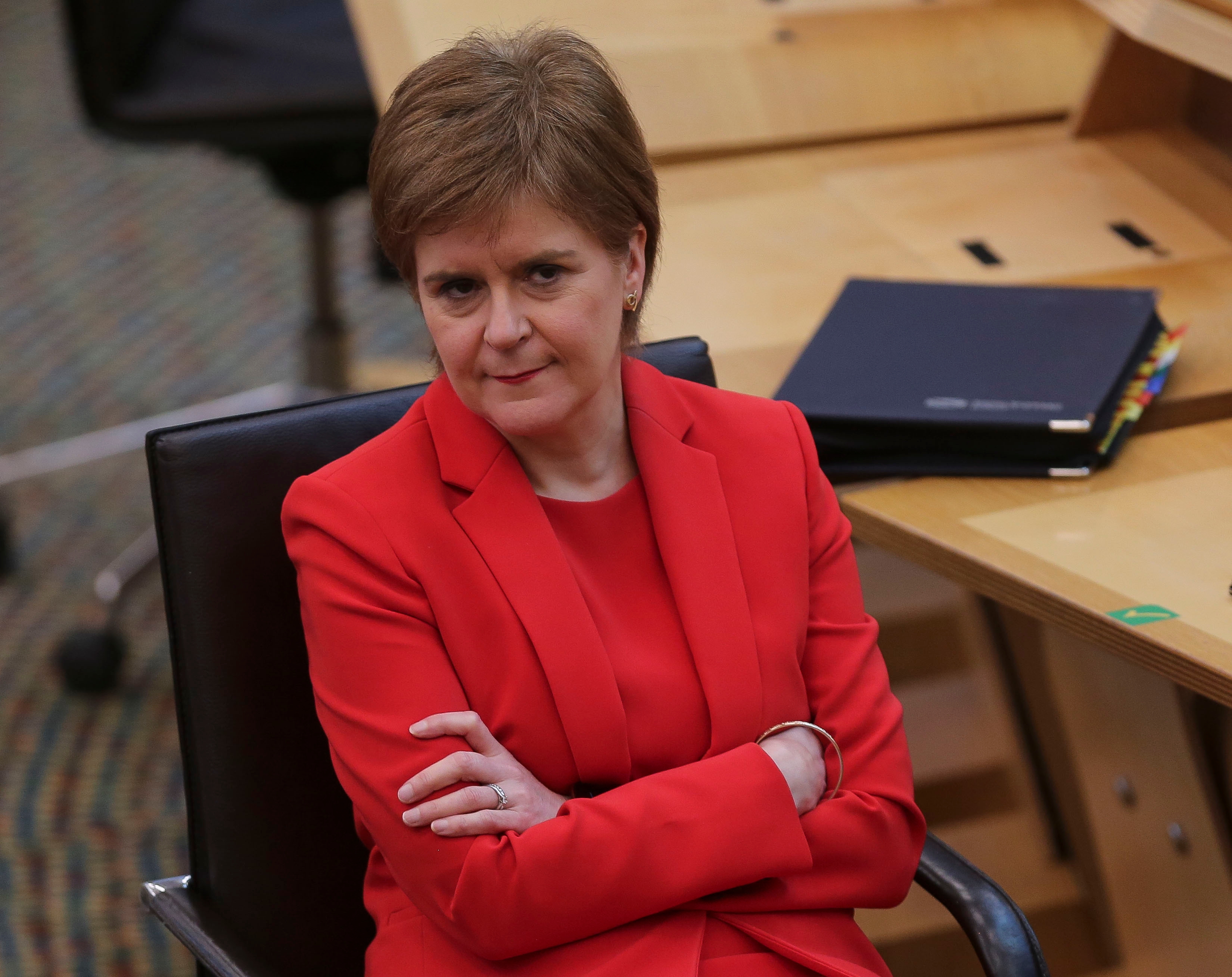There is a whiff of something in the current Scottish Parliament elections. It’s not quite strong enough to call it foul but nor is it faint enough to go undetected. What I can tell you is this: it doesn’t smell right.
Yesterday, Alex Salmond’s new party, Alba, released a video depicting throngs of flag-waving nationalists with a voiceover delivered by an actor from the imagined perspective of Robert the Bruce. (If that seems like an odd idea for an election ad, welcome to Scotland.) ‘Bruce’ described the Battle of Bannockburn thus: ‘People power by the small folk of Scotland was the straw which broke the spine of English superiority’.
‘People power’ is a curious way of describing a conflict waged by the King of Scotland, the Earl of Carrick and the Earl of Moray against the King of England, the Earl of Hereford and the Earl of Pembroke. Of course, the all-important line was: ‘broke the spine of English superiority’. There is a section of Scotland that still sees the English as oppressors and occupiers, and it is not limited to the fringes. The writer and artist Alasdair Gray penned an ugly monograph in 2012 that divided the English in Scotland into ‘settlers’ and ‘colonists’. Yet on his death in 2019, he was hailed as ‘one of Scotland’s literary giants’ (Nicola Sturgeon), ‘a true master of creativity’ (the Saltire Society) and ‘legendary’ (the Glasgow Herald).
SNP politicians were quick to deride the Alba video, posing as though Alex Salmond wasn’t like this when he was their leader six and a half years ago and one of their MPs four years ago. Posing, indeed, as though their own party didn’t indulge in a little blood and soil every now and then. As recently as 2014, SNP conferences would conclude with a jolly ballad called Scots Wha Hae (Scots Who Have), which, in standard English, includes lyrics such as:
There are other ways of slipping the E-word into Scottish political discourse, thereby upping the whiff factor.
Who will be a traitor knave?
Who will fill a coward’s grave?
Who so base as be a slave?
Let him turn and flee.
And:
By oppression’s woes and pains,
By your sons in servile chains,
We will drain our dearest veins
But they shall be free.
The most senior SNP politicians would get to their feet to bellow about ‘freedom’s sword’. Who, they demanded, was man enough to ’strongly draw’ this weapon and ‘lay the proud usurpers low’? After all, ‘liberty’ was ‘in every blow’.
Contemporary nationalists defend the sanguinary singsong, set to verses penned by Robert Burns, as a work of romantic radicalism and argue that the Bard had in mind the trial and transportation of crusading Glaswegian lawyer Thomas Muir as much as the grisly goings on in a field in Stirlingshire in 1314. It is, nonetheless, just plain weird. A political movement never done griping about being mischaracterised as Braveheart enthusiasts, that demands to be recognised as a modern, outward-looking, social democratic tendency, can’t seem to get over its fondness for singing about bayonetting the English.
There are other ways of slipping the E-word into Scottish political discourse, thereby upping the whiff factor. As Steerpike notes, when Nicola Sturgeon announced on her BBC Scotland pandemic slot this afternoon that outdoor socialising rules were being eased north of the border, this did not extend to cross-border excursions. (If it seems odd that the leader of the SNP still has a regular slot on the BBC in the middle of an election, once again: welcome to Scotland.) She told journalists: ‘We don’t want people travelling across the border, going to pubs and potentially bringing the virus back.’
As Steerpike also notes, there are currently 28.1 Covid cases for every 100,000 people in England, versus 40.7 in Scotland. Surely her concern should be for infections in the opposite direction. This is not the first time Sturgeon has flirted with this brand of rhetoric. Last summer, she spent weeks refusing to rule out introducing a quarantine for English people entering Scotland, while claiming: ‘The prevalence of the virus in Scotland, right now, is five times lower than it is in England’.
This had a predictable effect. The day after Sturgeon made the prevalence assertion, a group of Scottish nationalists gathered on the border with England, dressed in hazmat suits and brandishing SNP flags, shouting ‘plague carrier’ at motorists crossing over from England. They carried banners reading ‘Keep Scotland Covid Free’ and said their message was ‘stay the fuck out’. They also recorded licence plate details and explained: ‘If they’ll not stay at home, we’ll shame them to death.’
A poll conducted the following month found 40 per cent of Scots in favour of barring unquarantined English visitors from entering the country, an attitude not replicated for the Welsh, Northern Irish or citizens of the Irish republic. Sturgeon was later rebuked by the Office for Statistics Regulation, which said of her ‘five times lower’ routine: ‘The sources used to underpin this claim have been difficult to identify.’
Reverting to this kind of rhetoric would have been ill-advised at the best of times but in the middle of an election in which Sturgeon is being outflanked by more hardline nationalists, it takes on the worst possible inferences. The Scottish Nationalist leader will be aware of the history of associating illnesses and outbreaks with specific groups and nationalities. If she doesn’t want to be lumped in with her predecessor, she should be more mindful of the language she uses.








Comments